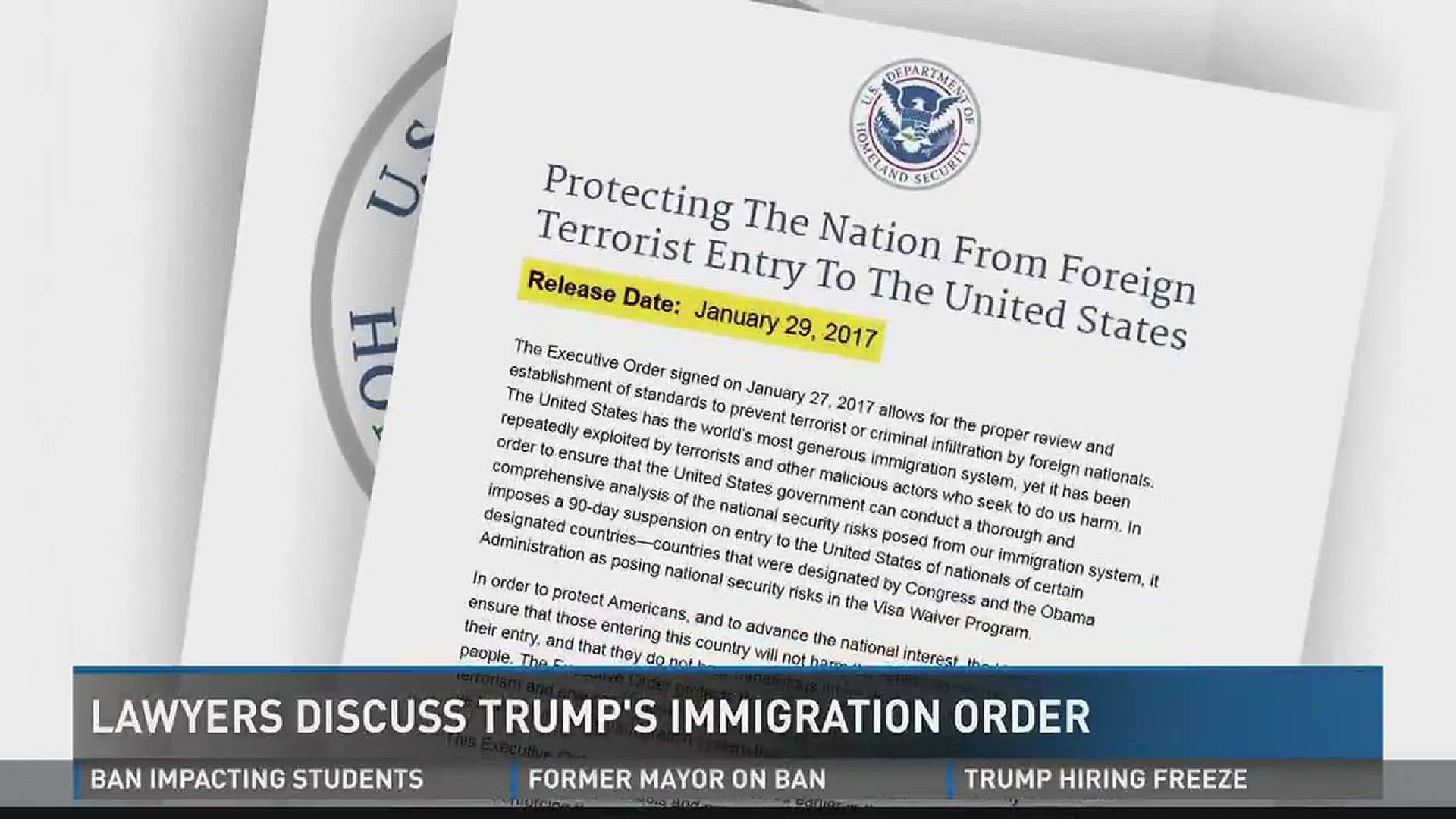Attorney Generals from 15 states and Washington D.C. are filing legal challenges to President Trump's executive order on immigration, claiming it may be unconstitutional. Our Madison Cavalchire took copies of the order to Mercer Law School to find out what some experts have to say about the text.
Mercer Law Professor David Oedel says he believes President Trump does have the power to issue this executive order based on the McCarran-Walter Act of 1952.
"That was a 'Red Scare' era act that gives the President power to outlaw whole classes of aliens," Oedel said.
But Oedel says that power doesn't mean people won't challenge the order as unconstitutional.
"The religious nature of giving preference to Christians in terms of refugees, may be seen as an establishment of religion that is possibly unconstitutional," Oedel said.
Oedel says at least some form of the order will likely survive Judicial Courts.
"They're likely to not want to stand in the way of a President making decisions about the United States' interests on the international stage," Oedel said.
Mercer Law School Associate Dean and Professor Scott Titshaw practiced immigration law for 12 years. He says the wording in the order is confusing and difficult to interpret.
"Whoever wrote this probably was not an expert on immigration law," Titshaw said.
Titshaw says even though the order is unclear, immigrants should expect it to be enforced.
"I would mainly suggest that they stay put here, that they keep abreast of changing situations," Titshaw said.
He says he expects more immigration orders, including more countries, could be coming. Titshaw says his understanding of the executive order is that it seems to apply to all refugees, not just refugees or immigrants from the seven countries listed in the executive order.

